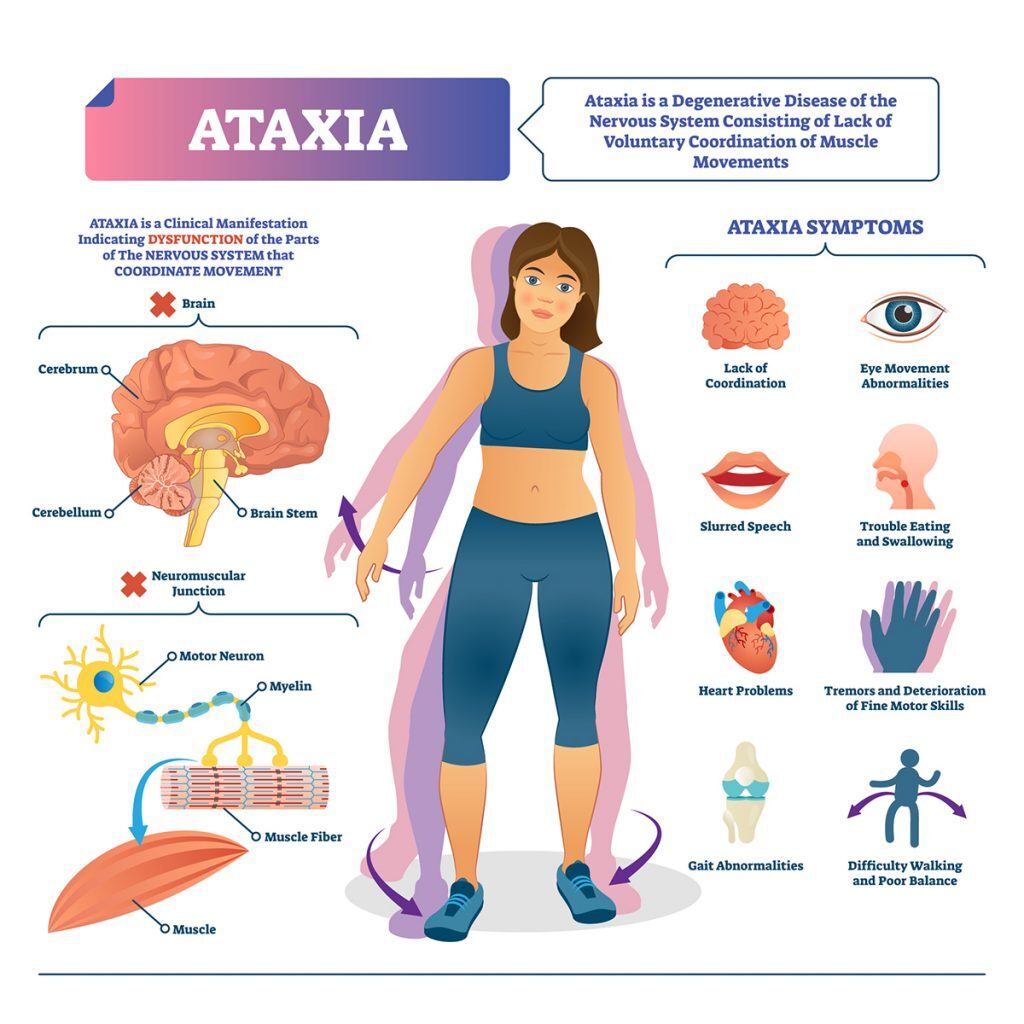Ataxia Treatment in Jaipur
Ataxia is a neurological disorder that affects coordination, balance, and movement. It can cause a range of symptoms, including difficulty walking, loss of balance, and tremors. If you or a loved one are struggling with ataxia, Dr. Arvind Jaga, a leading physiotherapist for Ataxia Treatment in Jaipur, can help.
Dr. Jaga offers personalized Ataxia therapy plans for individuals with ataxia that are tailored to their specific needs and goals. He uses a variety of physiotherapy techniques, including exercise therapy, gait training, and balance training, to help improve coordination, balance, and mobility. These techniques can help individuals with ataxia perform daily activities with more ease and independence.
In addition to physiotherapy, Dr. Jaga may also recommend other complementary therapies, such as occupational therapy and speech therapy, to address the various symptoms associated with ataxia. He takes a holistic approach to treatment, focusing not only on physical symptoms but also on the emotional and psychological impact of the condition. Dr. Jaga is dedicated to providing compassionate and comprehensive care to individuals with ataxia clinic in jaipur.
He works closely with his patients to develop a personalized treatment plan that is tailored to their unique needs and goals. If you or a loved one are seeking ataxia treatment in Jaipur, contact Dr. Arvind Jaga today.
 What is Ataxia?
What is Ataxia?
Ataxia is a neurological disorder that affects a person’s coordination, balance, and speech. It is caused by damage to the cerebellum or the nerves that connect to it. Ataxia can occur due to a wide range of reasons, including genetics, head injury, stroke, multiple sclerosis, and alcohol abuse. Symptoms of ataxia may include difficulty walking, loss of coordination, slurred speech, and difficulty with fine motor skills.
Ataxia can be a progressive condition, and it can significantly impact a person’s quality of life. However, with proper treatment and management, people with ataxia can learn to adapt and improve their functioning. Physiotherapy, occupational therapy, speech therapy, and medication can all play a role in the treatment of ataxia.
If you are experiencing symptoms of ataxia, it is important to seek medical attention from a qualified healthcare provider. Dr. Arvind Jaga, a physiotherapist in Jaipur, can provide specialized treatment and management for ataxia to help you maintain your quality of life and improve your overall functioning.
Symptoms:
The symptoms of ataxia can vary depending on the underlying cause and severity of the condition.
The most common symptom of ataxia is difficulty with coordination and balance, which can lead to unsteady walking, frequent falls, and trouble with fine motor tasks like writing or buttoning clothes. Other symptoms can include tremors, slurred speech, difficulty swallowing, and vision problems.
- Difficulty in doing tasks, such as buttoning a shirt, eating or writing
- Slurring of speech
- Difficulty in balancing
- Poor co-ordination
- Nystagmus
- Difficulty in swallowing
Causes:
- Some common causes of Ataxia are:
- Genetics
- Damage to the brain or spinal cord
- Vitamin B-12 deficiency
- Exposure to toxic chemicals
- Brain tumour
- Multiple sclerosis, cerebral palsy, and some other neurological diseases
Treatment:
- There is currently no definitive cure for ataxia. In certain situations, treating the underlying cause may aid in the improvement of ataxia symptoms. In some cases, such as ataxia caused by chickenpox or other viral infections, it may resolve on its own. Your doctor may recommend the use of adaptive devices or therapies to assist with your ataxia. Other symptoms like stiffness, tremors, and dizziness may also benefit from treatmen.
Therapies:
You might benefit from certain therapies, including:
- Physical therapy to help your coordination and enhance your mobility
- Occupational therapy to help you with daily living tasks, such as feeding yourself
- Speech therapy to improve speech and aid swallowing
